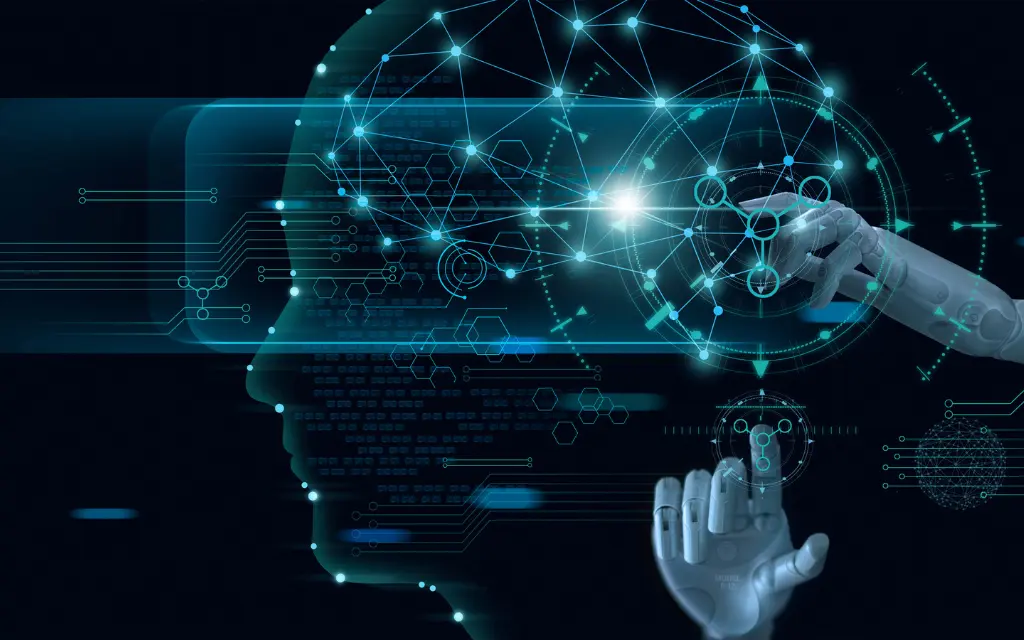The Revolutionizing Power of AI in Cybersecurity
Table of Contents
Toggle- June 07, 2023
The present era is making a considerable shift towards technological advancements, both for enterprises and individuals. The safeguarding of information from cyber dangers is a universal concern.
The proliferation of the Internet of Things has led to increased dependence on digital services. Consequently, there has been a surge of advanced and intricate threats that necessitate prompt remediation and resolution.
The realm of information security has experienced a noteworthy escalation in the importance of AI in cybersecurity in contemporary times. The reason behind this phenomenon is the remarkable ability of AI and ML to rapidly scrutinize and assess millions of data sets to spot an extensive range of cyber threats.
These advanced technologies including AI Cybersecurity continue to augment their capabilities by assimilating insights from past experiences and current data to identify new forms of potential attacks that may arise in the present or future.
This blog will explain the role of Artificial Intelligence in cybersecurity and how AI Cybersecurity is revolutionizing the industry.
Threat Detection
One of the foremost predicaments that those in the realm of cyber security encounter is the sheer magnitude of information that necessitates their attention.
Given the copious number of devices that are interconnected to the internet (with IoT expansion expected to escalate to 3.22 billion solely in North America in this year 2023), an insatiable desire for data processing arises.
The technology of AI cybersecurity has proven to be an exceedingly beneficial instrument in the realm of cyber security, primarily because it can effectively and accurately examine vast amounts of information.
As such, it has become a necessary implement for those in the AI cyber security field. The algorithms employed can rapidly analyze patterns within the data to discern potential threats and detect any aberrant activity.

Machine Learning
Another noteworthy benefit of AI cyber security systems is their capacity to learn from prior attacks and to enhance existing capabilities for threat detection.
Machine learning algorithms are capable of analyzing data from past attacks, discerning patterns and crafting novel and sophisticated methods for detection.
As these systems evolve over time, their enhancement renders them increasingly difficult to breach for cyber criminals.

Automation
The utilization of artificial intelligence has also facilitated the automation and optimization of certain aspects of cyber security.
Consequently, cyber security professionals are able to dedicate their focus towards investigating and mitigating complex threats, whilst the AI performs more mundane or repetitive tasks.
This increases efficiency and productivity within the field, permitting professionals to use their expertise more effectively.

Endpoint Security
As the number of devices used for remote work continues to rise, AI emerges as a critical player in endpoint security.
While antivirus solutions and virtual private networks (VPNs) may help thwart remote malware and ransomware attacks, they frequently depend on signature-based detection methods.
Protecting against the latest threats necessitates staying up-to-date with signature definitions.
Despite its usefulness, there can be issues that arise when virus definitions fail to update due to a range of factors, such as software vendors being uninformed or the antivirus software not being updated.
Such cases can lead to signature-based protection falling short in terms of providing adequate protection against novel forms of malware attacks.
This highlights the necessity for more advanced security measures that can offer better safeguards.
Insider Threats
The domain of cyber security has witnessed a substantial boon with the integration of artificial intelligence (AI), particularly in the realm of preventing and identifying insider threats.
These threats pose a considerable challenge when it comes to detection, as the involved individuals generally hold legitimate access to the network.
However, AI cybersecurity possess the capability to meticulously analyze user behavior and recognize patterns that suggest the presence of an insider threat.
These patterns can then be precisely isolated and marked for further examination, which in turn provides cyber security professionals with the necessary information to safeguard their networks against these types of threats.
As such, AI represents a critical tool for organizations seeking to proactively bolster their security measures against a wide range of cyber attacks.

Threat Intelligence
The integration of artificial intelligence has proven to be a crucial factor in the improvement of threat intelligence.
By meticulously examining vast amounts of information sourced from various platforms, AI cybersecurity solutions can identify plausible threats and deliver early alerts about emerging forms of cyberattacks.
This valuable insight can then be employed to formulate cybersecurity strategies that are highly efficient, consequently bolstering an entity’s security stance.
Hence, AI presents an invaluable resource for businesses to proactively secure themselves against cyber threats.
By scrutinizing user conduct, AI cybersecurity systems can identify trends that may indicate an insider threat. These trends can then be singled out and marked for in-depth inspection, empowering companies to enhance their network securit monitoring strategies against both internal and external threats
Transforming the Digital Landscape through AI Cybersecurity
The utilization of Artificial Intelligence (AI) in the realm of cybersecurity has revolutionized the way businesses in various industries such as financial institutions, healthcare providers, and government agencies, protect their confidential information from malevolent cyber attackers.
By harnessing the power of machine learning algorithms and advanced hardware infrastructure, companies can swiftly detect anomalies before cyber criminals can inflict any harm.
Thus reducing the expenses associated with incident response efforts after an attack has occurred, which translates to monetary benefits for companies that invest extensively in securing their digital assets from malicious actors in cyberspace.
Additionally, by automating laborious processes, companies can reduce their workforce costs linked with hiring additional staff for 24/7 network monitoring.
Moreover, through real-time comprehensive evaluations, companies can improve their visibility into all devices connected to the internet, and consequently minimize the risks associated with potential threats.

Conclusion
In the realm of cybersecurity, AI is fundamentally altering the landscape. There are several benefits of artificial intelligence in cyber security for businesses looking to protect against cyber threats, respond to attacks in real-time, and improve their overall security posture.
Nevertheless, AI must confront various challenges related to transparency, data availability, evolving threats, privacy, and ethics. By tackling these challenges head-on, organizations can fully harness the potential of Artificial Intelligence in cybersecurity and maintain a competitive edge in the ever-changing digital environment.





